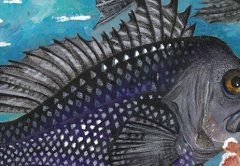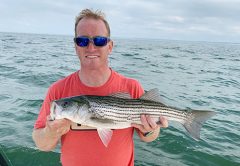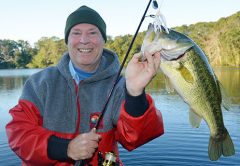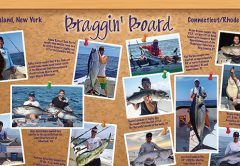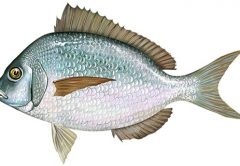[one_third last=”no”]
[colored_box color=”grey”]
Wine and Beer Pairings
Michael Yerys, Director of Food and Beverage at Rhode Island’s Weekapaug Inn and Ocean House resorts, suggests pairing Paella with a Pinot Noir.
His suggestion:
Belle Pente Pinot Noir from Willamette Valley in Oregon – $80 on the Weekapaug menu, or part of the $35 wine pairings with the meal.
John Callaghan of Bellevue Wine and Spirits in Newport agrees…he suggests:
Hartford Court Russian River Pino Noir – $38.99
Domaine St Gregory Pinot Noir from Mendocino – Regularly $19.99 currently on sale at $14.99 at Bellevue
For salt cod, the Weekapaug suggests their buttery but not oaky Chardonnay from Argentina and Bellevue recommends an Albarino from Spain.
Try:
Catena Alta Chardonnay from Argentina – $52 on the Weekapaug Restaurant menu
La Cana Albarino $19.99 at Bellevue
If beer is your pleasure, Yeres suggests any of our locally crafted Rhode Island brews. Matthew Medeiros of our Naragansett Brewery suggests: Narragansett Bohemian Pilsner – $8.99 for six-pack of 16 oz cans, The Narragansett Brewing Company, Providence RI
[/colored_box]
[/one_third]
In Rhode Island and other coastal communities, Christmas Eve is often celebrated with family and friends by sharing the Feast of the Seven Fishes, a multi-course meal focusing on seafood, shellfish, winter vegetables, pastas, soups and stews. Sometimes called La Vigilia–an abbreviation of La Vigilia di Natale, which means Christmas Eve in the Italian language–it refers to the old Sicilian tradition of not eating for 24 hours before ending the holy day of fasting with a rustic but sumptuous meal. Remembering that meat was not eaten on such holy days, the tradition was to serve fish, and in Southern Italy this would include the many different kinds of fish, i.e., fishes, available in the winter off the Mediterranean coast.
The Feast of the Seven Fishes is celebrated with various and varying seafood dishes. The number of courses can also vary–from the original seven for the seven days of creation in the Bible or the seven sacraments in Roman Catholicism, to sometimes even 13 courses for the 12 apostles and Christ. But whatever the types of fish used, the recipes or number of courses, La Vigilia almost always includes baccala–salted cod–as well as some sort of shellfish.
In Rhode Island, the Weekapaug Inn in Westerly is honoring the holiday tradition this year with a Feast of the Seven Fishes Christmas Eve dinner that will include, among other dishes, Portuguese Salted Cod and Potato Cakes (bacalhau), Stuffed Clams, Lemon Sole and a New England take on Paella, the rice and shellfish dish that many of our RI Portuguese and Latino fishermen know and love. As a matter of fact, some say that the roots of salted cod lie with the Portuguese, having had to preserve food during long sails.
The traditional technique for curing quality salt cod is to split a three to six ft fresh cod, filet and salt it for about ten days and then allow it to dry. To be eaten–at least palatably–salt cod must be rehydrated first. The easiest way, of course, is to buy the fish already rehydrated from a neighborhood Italian deli, but if you want to do it yourself, simply rinse the salt off the fish and soak the cod in cold water for at least 12 hours. Refrigeration is not necessary during the process unless the weather is particularly hot–just change the water every three or four hours to keep fresh and cool.
Recipes for baccala, even on Christmas eve, vary–braised with capers and tomatoes, creamed with potatoes and olives, or fried with garlic and rosemary are just a few traditional preparations. But it is important to serve baccala of some sort during the Feast of the Seven Fishes. At the Weekapaug Inn, Executive Chef Jennifer Backman will be serving baccala as one of her appetizers–prepared as a salt cod and potato cake.
“We make a fresh salt cod in-house,” Chef Jennifer says. “We bake local, gorgeous bank cod with a salt crust and then use that in the preparation of the traditional cakes. This results in a more tender and less salty dish.”
If you don’t want to overwhelm your guests’ appetites, be sure to serve small plates during the Feast, starting with the lighter dishes first, such as a crudite of winter vegetables served with a traditional bagna cauda dipping sauce made with anchovies, followed by salads, including marinated octopus or squid, or even baked eel with fennel, which Mario Batali swears is the most important feature of the Feast. But this claim is hotly debated–most Rhodys agree that salt cod is the most important dish to be included in the Feast of the Seven Fishes, with shellfish coming in as a close second.
Raw or roasted oysters, stuffed clams, or briny mussels are all traditionally served as the first course of the Feast and often are followed by a fresh pasta, such as linguini with clams or Pasta con le Sarde (sardines), or a soup, such as an Italian Cioppino or even a New England Oyster Stew, depending, of course, on the number of courses being served. The main dish–if one can even call it that after so many delicious little plates–is often just a slightly larger portion or a heartier dish than those served before and can include such festive presentations as a whole roasted fish or a terrine of shellfish stew, perfect for a cold winter night.
The Weekapaug Inn is serving both a light Lemon Sole and a Paella as the entree. Using only local shellfish stewed with tomatoes, Portuguese chourico, rice and lots of luxurious saffron, this New England take on Paella lends itself to being savored. Sometimes called liquid gold, a sauce made with saffron should not be left at the bottom of the bowl–try dipping it with bread or scooping it up with rice, especially the crunchy bottom layer of rice in a well cooked paella. “That is one of the best parts of a good paella,” says Chef Jennifer.
Including clams, mussels, scallops and sometimes lobster, a seafood paella is a real treat. And speaking of treats, the Weekapaug Inn will be serving a Tiramisu Parfait as a dessert, as well as Anise Zeppoli–light and airy fried donuts tasting slightly of licorice–served with honey and a dark chocolate dipping sauce. Add to this delightful menu the natural beauty of the water and wildlife surrounding the Weekapaug dining room, and the Feast of the Seven Fishes becomes a treasured gift to be shared with family or friends on Christmas Eve.
While the Weekapaug Inn has been a well-known and long sought-after RI summer destination for over a hundred years, this is only the second winter season it has been open year-round. The Inn was recently renovated to not only include heat for the first time, but also to make the lodgings worthy of becoming a Relais & Chateaux property and sister resort to The Ocean House in Watch Hill. Located on Quonochontaug Pond in Westerly between the ocean and the salt pond, the Weekapaug–a Native American word meaning “end of pond”–is ideal for saltwater fishing, either in the pond or along the beach and rocky shoreline just a short walk from the Inn. The resort offers guests a supply of fishing rods and gear to choose from–including fly rods, spinning rods and waders–as well as its own resident angler and nature expert, Mark Bollinger.
“Guests at the Inn need walk only four or five hundred yards to fish the best locations,” says Bollinger. “The king of the Weekapaug is the striped bass,” he continues. “The striper bite kicks off first in the salt pond, but by late May they are being caught in the suds. Early season peaks in June, before dropping off in late July and August, but September and October see the return of fish for the fall runs and big fish have been caught as late as Thanksgiving.”
The Weekapaug Inn keeps a Boston Whaler at the dock for one or two-hour outings, but longer charters can be arranged, including fishing guides if needed. “The Weekapaug surf scene is known throughout the northeast,” says Bollinger. “In the fall, it is common to see truckloads of salty anglers with plates from as far away as Maryland or North Carolina.”
For the less intrepid, the Inn also offers a fleet of boats suitable for fishing in the salt pond–including kayaks, canoes, rowboats and a pedal boat–as well as a few small sailboats and a state-of-the-art 24 ft Elco electric launch, which is perfect for naturalists or armchair hunters wanting a quiet ride to spot wildlife. Nestled in a secluded patch of land and marsh, the Weekapaug is home to deer, grouse, wild turkeys, woodcocks and ducks this time of year, not to mention the occasional loon or snowy owl.
“Recently we had a rash of bald eagle sightings,” Naturalist Bollinger tells us. “In the winter, we also often have seals on the rocks down the pond!”
Given that the culture of the Weekapaug Inn has been heavily based on tradition since it first opened in 1899, celebrating the holiday season at at he Inn has already become a hot ticket for Rhodys and visitors alike. Thanksgiving Dinner in the Weekapaug Restaurant–including whole turkeys carved in the dining room and served family-style with sides of squash, kale, cabbage, parsnips and other root vegetables–was sold out. And this Christmas Eve’s Feast of the Seven Fishes promises to deliver the same. A warm, welcoming ambience and casual elegance has made the Weekapaug Inn a home away from home for many years–and by the looks of their new restoration, for many years to come.
Seatings in The Restaurant at the Weekapaug Inn for Christmas Eve are from 5 to 8 p.m.; $64 for adults plus $35/person for optional wine pairing; $28 for children aged 6-12; children five & under are free. (Tax and gratuity are additional; see below recommendations for wines from their cellar that will pair well with winter fishes).
[yumprint-recipe id=’3′]
[easy-social-share]






